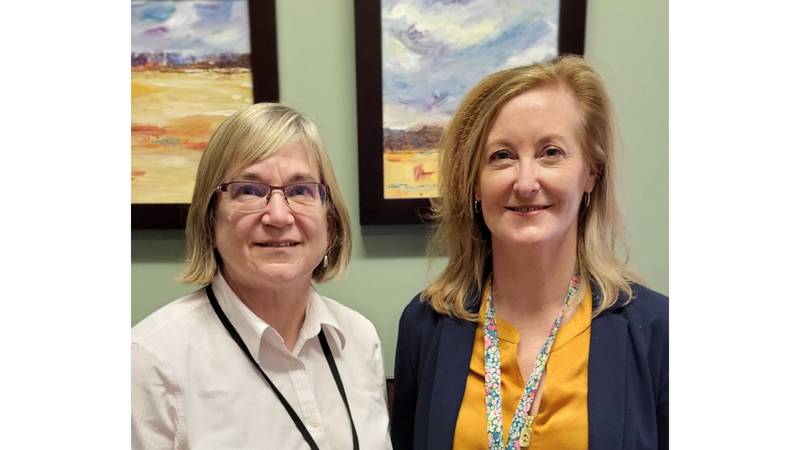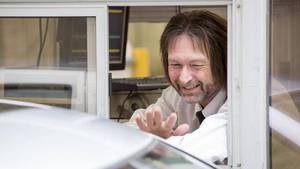From a very young age, those living with cystic fibrosis are aware that they have a life-threatening condition, and that their future might be uncertain. A new drug that has been referred to as the biggest innovation in cystic fibrosis treatment is changing that.
As of November 2021, Trikafta, developed by Vertex Pharmaceuticals, is available to Nova Scotians with cystic fibrosis for free through the province’s pharmacare program.
Trikafta helps defective Cystic Fibrosis Transmembrane Conductance Regulator (CFTR) proteins work more effectively through a triple combination of therapies. Two of the drugs in the treatment work as “correctors.” They bind to the faulty protein and help it fold correctly. This way, cells can shuttle more of it to the membrane instead of degrading it.
The third drug is a potentiator – it binds to the CFTR protein and holds the channel open so that more salt can pass through it. With a combination of all three therapies, more CFTR protein reaches the cell membrane, and these proteins are more active and functional.
Nova Scotia Health’s research team in respirology, which is supported by the organization’s Clinical Trials Unit within the Nova Scotia Health Innovation Hub, has been a key partner with Vertex Pharmaceuticals on clinical trials for cystic fibrosis treatments since 2010.
“We started with the first cystic fibrosis modulator drug, Kalydeco, which is one of the compounds that’s in Trikafta,” says Andrea Dale, respiratory therapist and research coordinator in respirology. “After we did that trial, we moved on to several trials that combined other compounds with Kalydeco. Then we did a comparator trial for the compound that’s in Trikafta.
“I think that people assume that all of this research takes place somewhere else – in the big centres like Calgary, Toronto or in the United States,” adds Andrea. “But we keep getting asked back by Vertex, so that shows the quality of research we are doing, and the data that we are delivering. I feel that the people that are sent here to monitor for us are really happy with what we do.”
Andrea is responsible for coordinating and conducting the study visits with all of the Vertex patients. She works with Dr. Nancy Morrison, medical director of the adult cystic fibrosis program at the QEII Health Sciences Centre, who has been one of the principle investigators for the trials.
“Dr. Morrison is very enthusiastic about doing this research,” says Andrea. “She’s excited for us to be on the national and international radar, and have people know that we’re here, we’re a great site to work with, and we deliver the goods.
“And our cystic fibrosis patients are extraordinary people,” she adds. “Some of the phase two trials involved coming in weekly, with visits that were close to 10 hours long. They lasted three to four weeks, and involved a lot of breathing tests (spirometry), blood work and EKGs, home monitoring and sweat testing. They are so compliant with what we ask them to do.”
Andrea notes that when they moved onto the phase three trials, the appointments were still lengthy — probably five to six hours long — but eventually decreased to every 12 weeks. This phase lasted about two years, and started out as a placebo control, then became an open label extension, which means all the participants had access to the drug.
“I remember way back, when we did the first trial with Kalydeco, this young girl who we didn’t know if she was on it or not,” says Andrea. “So, she came in and we needed to do breathing tests on her. When she came back two weeks later it was amazing.
“I remember handing her the spirometer to blow into,” she continues. “Her whole body, the way she did it was different than just two weeks previously. I asked her if she felt any different, and she commented that she was never able to sleep on her side — she would wake up coughing and miserable — but the last three or four days she was waking up on her side and felt fine. We looked at her numbers and she started at 75 per cent for her lung function, and that day she was 104 per cent. That just doesn’t happen with cystic fibrosis.”
Andrea notes that the drugs are generally well tolerated, and there’s not a huge number of side effects. Because it’s a clinical trial, patients are seen often and research coordinators like Andrea have close contact with them in between clinical visits.
“There are phone calls in between clinic visits, and we’re doing blood work all the time, and checking their lung function,” says Andrea.
The most recent clinical trial for the research team was to try Trikafta on cystic fibrosis patients who had not yet taken the drug. They wore devices like a cough monitor and an activity watch to monitor their progress. Most of the trial was conducted and monitored remotely and was a great opportunity for patients who live outside of the HRM to participate without the long drives to the hospital.
“Looking back at it, if this is the last set of trials I work on, I would say it’s a great way to end it. I can’t imagine anything better than this,” says Andrea. “It’s just beyond what any of us thought would happen.”
Nova Scotia Health’s Clinical Trials Unit, as part of the Health Innovation Hub, is helping to make these good news stories possible by fostering strong and coordinated research efforts, enabling relationships like this and contributing to the larger health ecosystem in Nova Scotia.








